On the afternoon of February 11, at the Government Headquarters, Prime Minister Pham Minh Chinh chaired the Conference on Science, Technology, Innovation and High-Quality Human Resources Development to Promote Economic Growth. Also attending were: General Luong Tam Quang, Politburo member, Minister of Public Security; Le Thanh Long, Party Central Committee member, Deputy Prime Minister; representatives of central ministries and branches; and a number of localities.
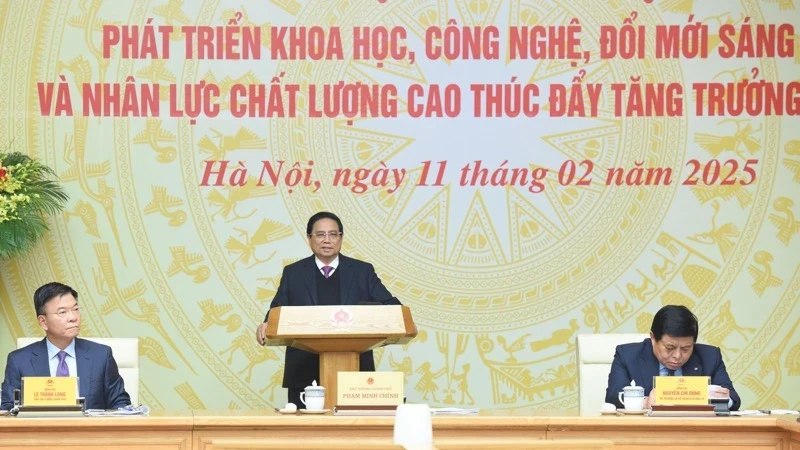
In his opening remarks, Prime Minister Pham Minh Chinh emphasized that this Conference focuses on finding solutions for growth with deeper content, which is the implementation of the Government's Resolution on implementing Resolution No. 57-NQ/TW of the Politburo on science and technology development, innovation and digital transformation; defining 5 clearly: "clear people, clear work, clear responsibility, clear progress, clear products".
The Prime Minister stated that to have growth, there must be increased labor productivity, and to have increased labor productivity, there must be science and technology, innovation, and digital transformation. Science and technology, education and training are considered top national policies; investment in science and technology, education and training is investment for development.
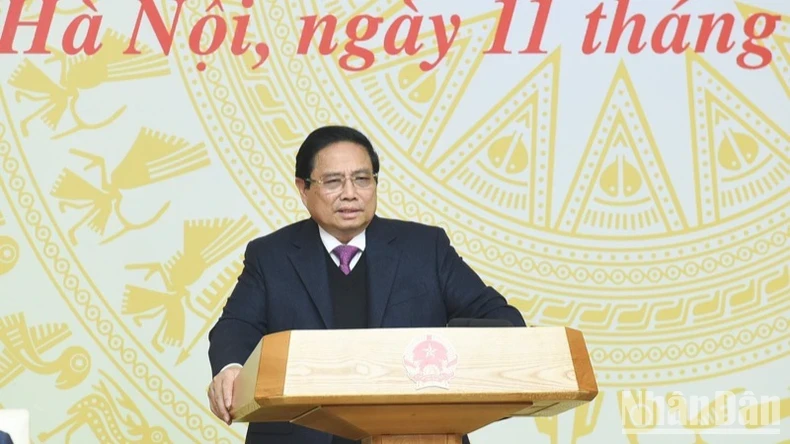
The Prime Minister wanted the Conference to discuss and concretize the action plan, identifying 7 groups of tasks and assigning 142 specific tasks to ministries, branches and localities for implementation. The Prime Minister raised the issue of how to implement science and technology, innovation, digital transformation and high-quality human resources to truly be the main driving force for rapid and sustainable growth and development of the country; truly a breakthrough factor, contributing to the goal of rapid and sustainable economic development.
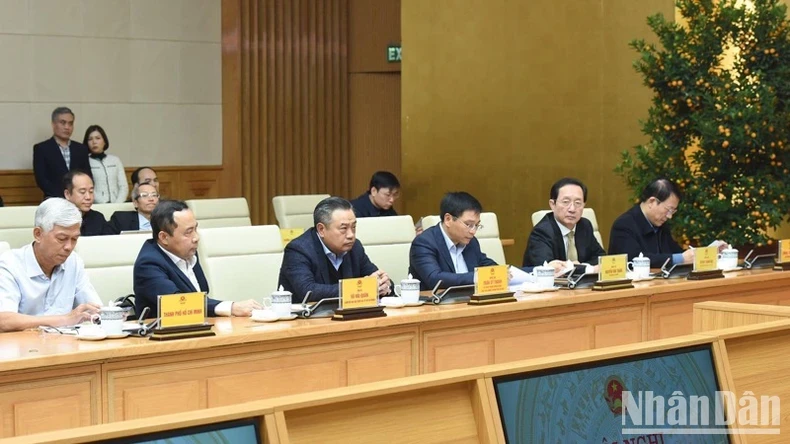
The Prime Minister affirmed that we must make a frank, objective and transparent assessment with specific evidence of current implementation, where we stand, what is our position? From there, we can clearly identify the difficulties and challenges, along with the opportunities and advantages to develop them into resources, limit the shortcomings and challenges for sustainable development. The Prime Minister hopes that delegates will give their opinions on which tasks are breakthroughs, whether they are institutions, methods of mobilizing resources, infrastructure and human resources?
The Prime Minister said that the Government is preparing to submit to the National Assembly a Resolution to remove obstacles in science and technology, along with continuing to perfect the Law on Science and Technology to submit to the National Assembly at the next session in May. The proposal to remove obstacles in terms of institutions includes allocating resources, including liberating thinking, thereby boldly proposing to allow scientists to do business, especially their own products, so that scientists can continue to innovate and create.
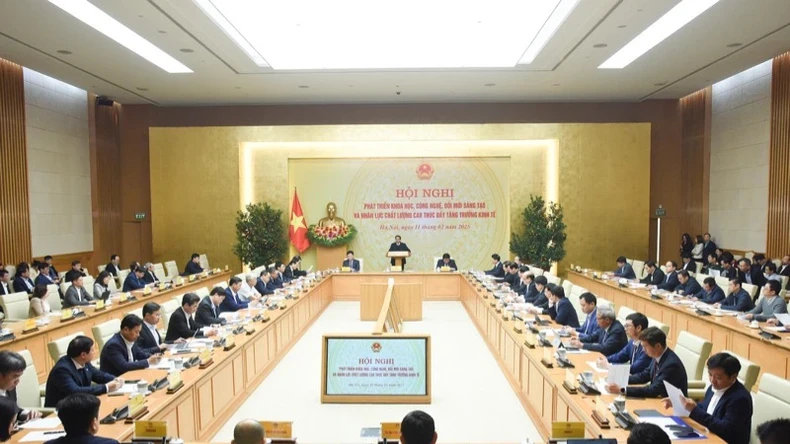
The Prime Minister requested that delegates clarify the key breakthrough tasks; digital transformation is truly a driving force for growth, contributing to the rapid and sustainable transformation of means of production. The Prime Minister stated that databases are important means of production, contributing to the creation of a creative economy. All ministries, branches, levels, and the entire political system must participate in order to be synchronous and effective. The implementation of science and technology, innovation, and digital transformation is not only the task of state agencies, academies, and research institutes, but also of businesses that must be pioneers in this field; all people must also participate in this process. People must be the center and subject of innovation, science and technology, and digital transformation; all achievements of this process must be aimed at the people; digital transformation is an objective requirement, a top priority, and a strategic choice. This is the vision, strategy, and priority for the rapid and sustainable development of the country.
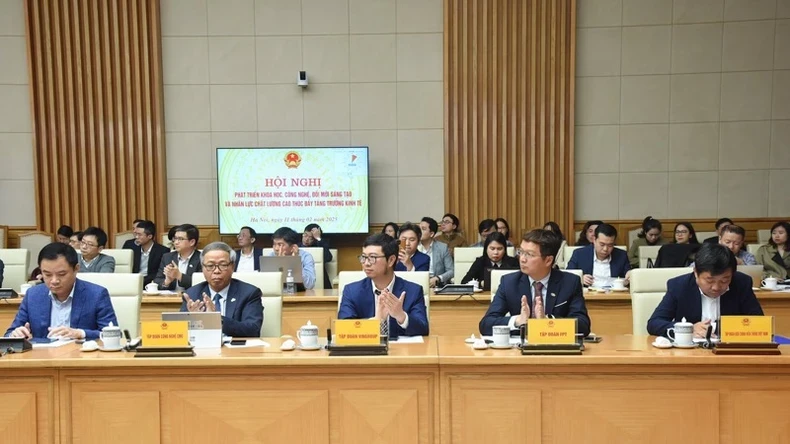
* According to the Ministry of Planning and Investment, many achievements in science, technology and innovation have been applied to economic and social development. Science, technology and innovation have made many practical contributions to socio-economic development, ensuring national defense and security, improving social security and people's quality of life. Some fields of natural sciences have reached the advanced level of the region and the world. Many modern scientific and technological achievements have been rapidly and widely applied in the fields of health, agriculture, industry, information, digital transformation and digital economy. The Total Factor Productivity (TFP) index has been constantly improved, making an important contribution to the growth of the country's economy. According to the General Statistics Office, the contribution of TFP total factors to economic growth in the 2021-2023 period is estimated at about 37.6%, and is expected to reach about 42.0% in the 2021-2025 period. That has contributed to increasing the direct contribution of science, technology and innovation to key sectors and fields of the economy.
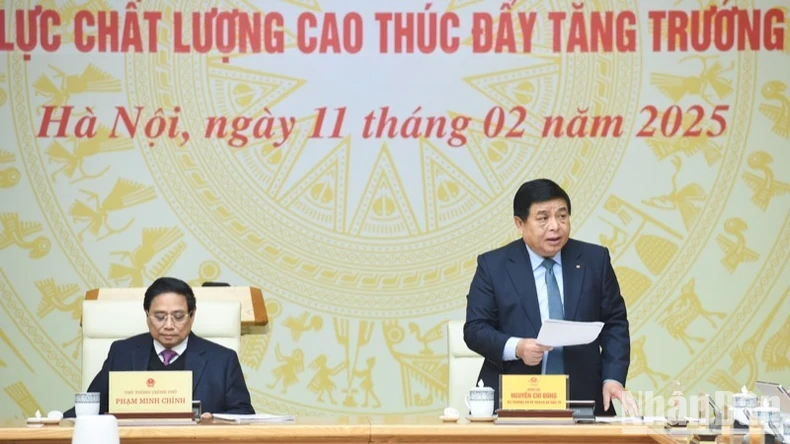
The semiconductor industry in Vietnam has made great strides, affirming its potential and determination to develop advanced technology. In a short time, Vietnam has made impressive steps in cooperating with countries and economies such as the United States, South Korea, Japan, Taiwan, France, Ireland, the Netherlands and large technology corporations such as Google, Meta, Microsoft, NVIDIA, Apple, Marvell, Samsung... to develop the semiconductor industry. Vietnam was also selected by the United States as one of six countries participating in the Chips Act to develop the global semiconductor supply chain. Currently, there are more than 50 enterprises participating in the chip design stage, more than 15 enterprises participating in the packaging, testing of chips and manufacturing of semiconductor materials and equipment operating in Vietnam. FPT has launched chip products in the medical industry, Viettel has produced chips for 5G devices.
The field of artificial intelligence has great potential to develop into a leading country in the region in AI. The number of enterprises operating in the field of artificial intelligence is increasing rapidly in both quantity and quality. Many AI products created by Vietnamese people are highly appreciated in the world technology community. Large technology corporations are forming research centers and expanding cooperation on artificial intelligence in Vietnam such as NVIDIA, Microsoft, Meta, Google.
Large corporations and enterprises are gradually asserting their pioneering role in the national innovation system. Investment in research and development, technology transfer and application, and linkages with universities, research institutes, innovation centers and small businesses in the supply chain are focused on and widely deployed by enterprises. This participation comes not only from foreign-invested enterprises such as NVIDIA, Samsung, Microsoft, etc., but also receives positive responses from domestic enterprises such as Viettel, FPT, VinGroup, Masan, CMC, Phenikaa, etc.
The innovation and startup centers that have been established and put into operation have initially made positive contributions to the economy. The National Innovation Center established by the Prime Minister has quickly affirmed itself as an important core of the national innovation ecosystem and is considered by the domestic and foreign communities as the leading innovation center in the region. Activities to attract "eagle" enterprises and incubate technology "unicorns" are continuously deployed by innovation centers, especially in the fields of semiconductors, artificial intelligence, new energy, smart factories, smart cities, cyber security... with the appearance and business expansion of Lam Research, NVIDIA, Marvell, Cadence, ARM, Meta, Google, Synopsys, AMD, Qorvo, Qualcomm....
Vietnam is an ideal location for many important international events on innovation and startups. Annual events on innovation and startups attract more than 5,000 businesses, investment funds, international organizations and 50,000 domestic businesses, universities and research institutes.
The number of venture capital funds in the world present in Vietnam ranks third in the region. With strong economic growth potential, a young and dynamic population and an increasingly professional environment for innovation and startups, Vietnam has had the participation and gradually expanded the investment portfolio of about 210 foreign venture capital funds such as 500 Startups, Golden Gate Ventures, Sequoia, Greylock Ventures, Vertex venture, Gradient Ventures, ..., while domestic funds Mekong Capital, CyberAgent Ventures, VinaCapital Ventures, IDG Ventures, ThinkZone and Do Ventures ... are also contributing to shaping the domestic innovation and startup ecosystem. Compared to other countries in the region, Vietnam ranks third in the number of venture capital deals, after Indonesia and Singapore.
Vietnam's Global Innovation Index has been continuously improving, ranking among the top middle-income countries. Vietnam is in the top group in the world in terms of improvement in the Global Innovation Index (GII), a country that has improved its ranking for 14 consecutive years. In 2024, Vietnam's GII ranked 44/132 countries, up 4 places compared to 2022. Meanwhile, Vietnam's Innovation Startup Ecosystem Index in 2024 ranked 56/100 countries, up 2 places compared to 2023. Da Nang entered the top 1,000 cities with the highest startup ecosystem index globally for the first time, ranking 896th, along with Ho Chi Minh City (ranked 111th) and Hanoi (ranked 157th).
Vietnam identifies that developing high-quality human resources is the foundation and prerequisite for developing science and technology, innovation, promoting economic growth, enhancing national competitive advantages, gradually narrowing, catching up, advancing with and surpassing the world. Vietnam currently has more than 240 universities, of which nearly 160 have majors in technical technology. The number of Vietnamese students studying in the fields of Science, Technology, Engineering and Mathematics (STEM) each year accounts for about 27-29% of the total number of university students, equivalent to about 560,000 - 600,000 students...
Source






























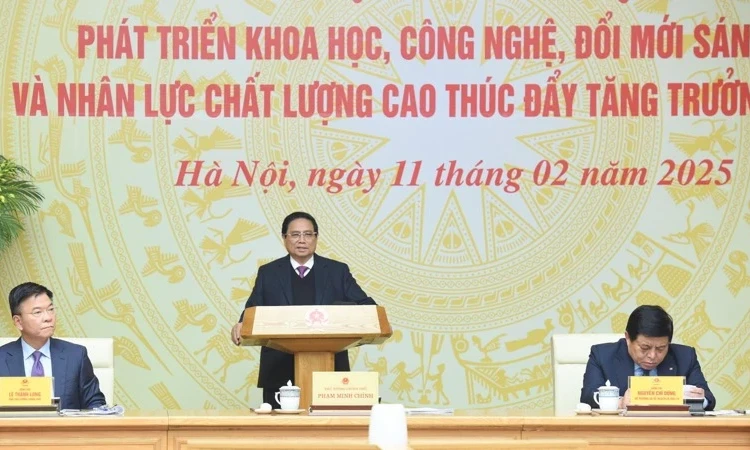


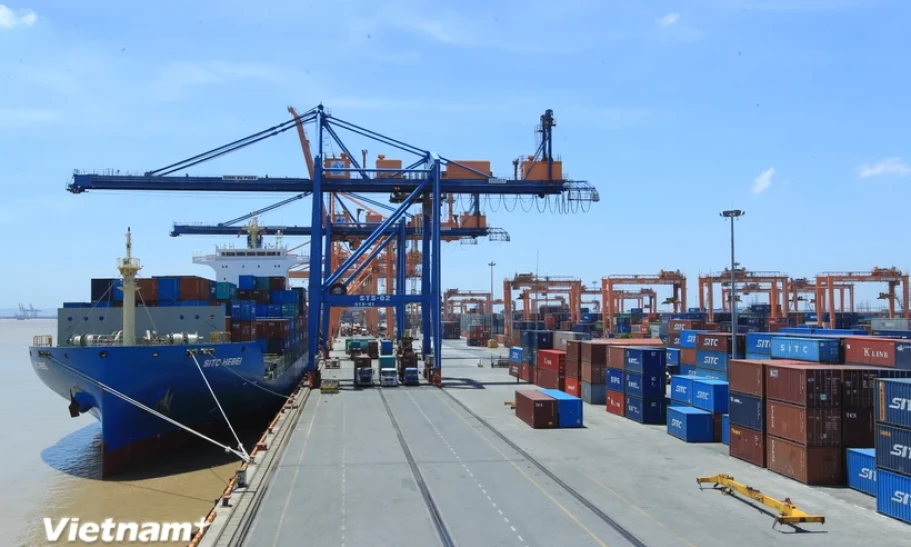



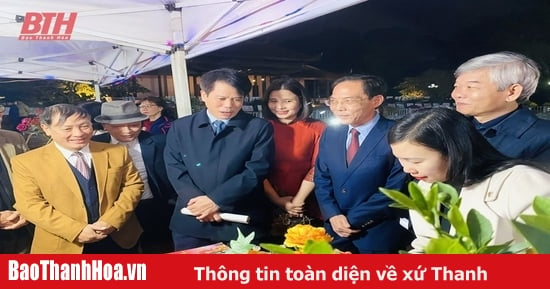








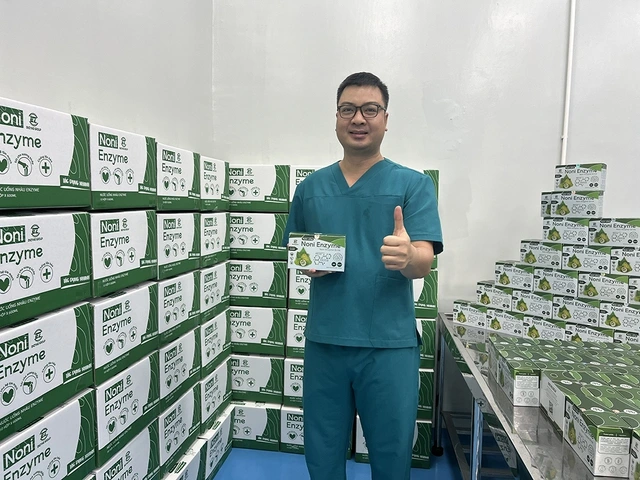






Comment (0)